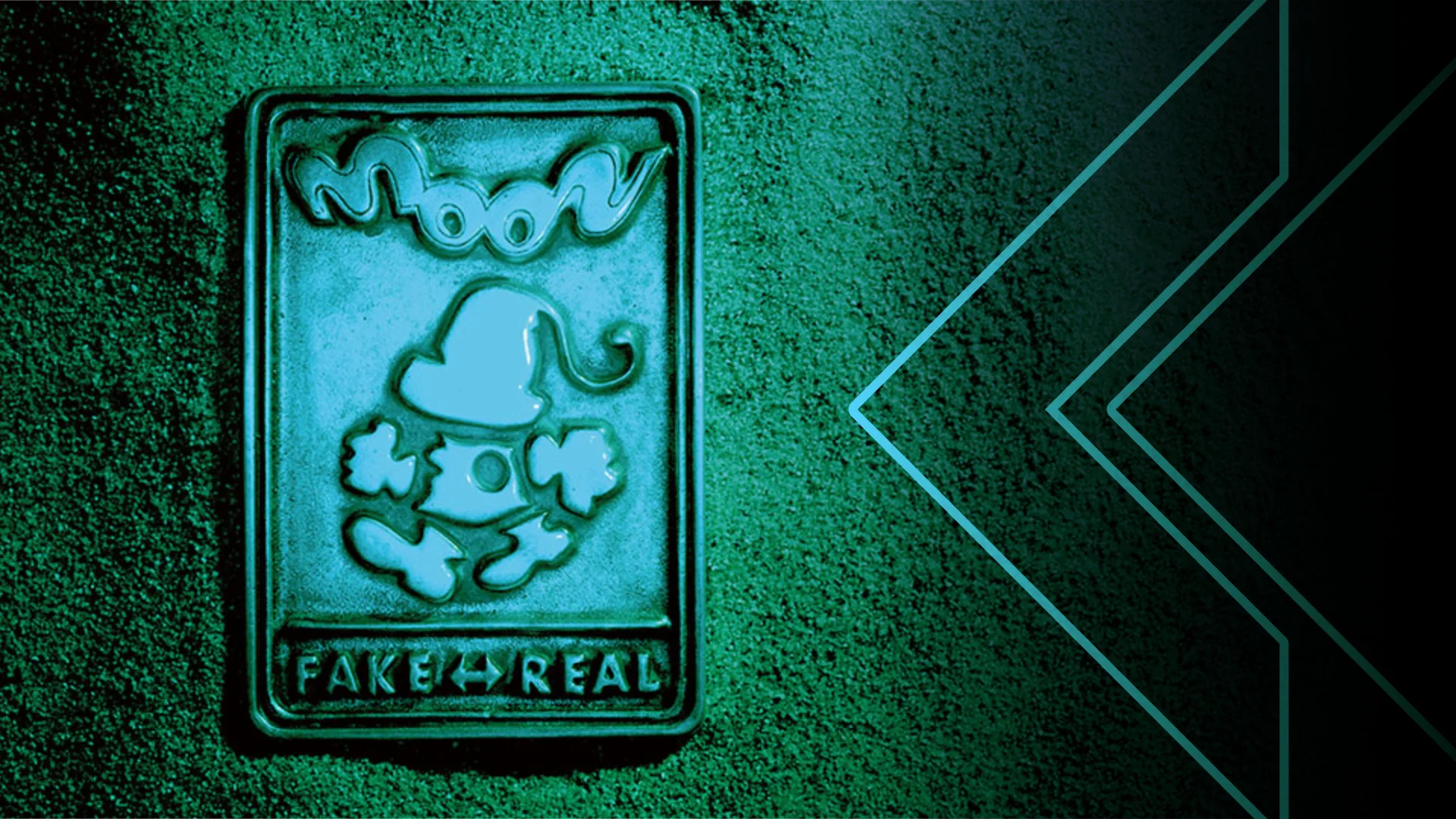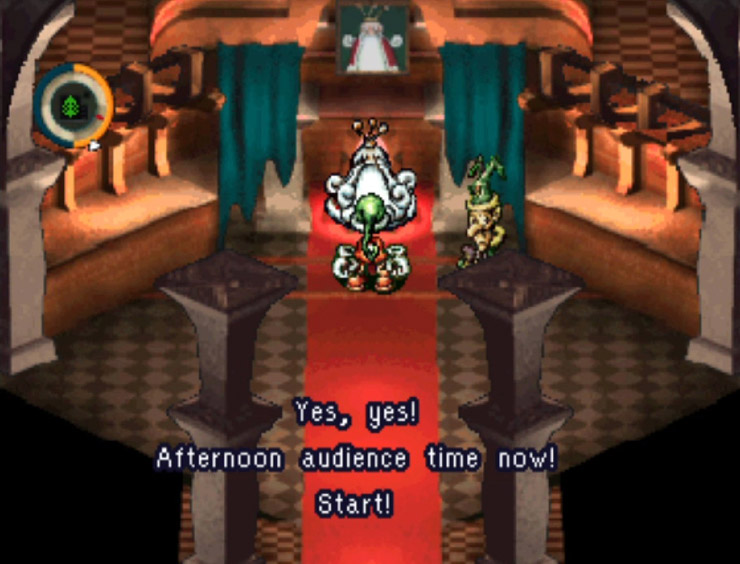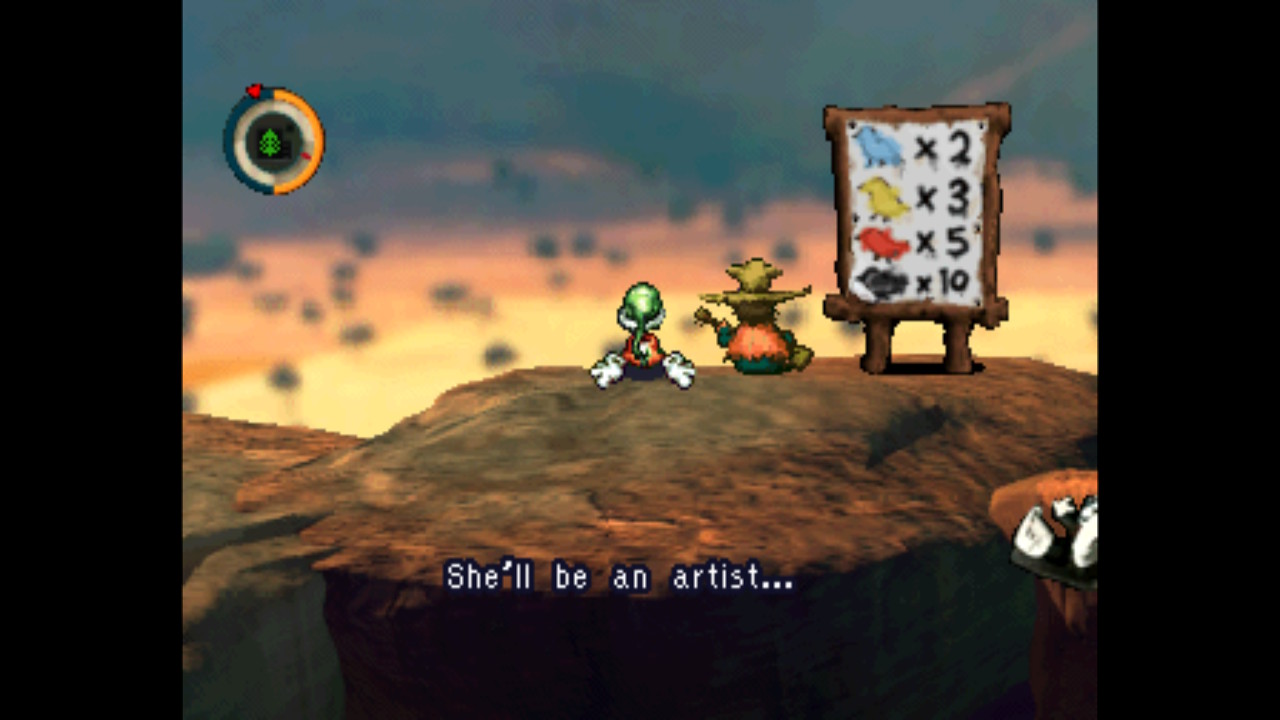Aleks Franiczek
As someone who loves to play videogames that try something different narratively, mechanically, and thematically, my exposure to Love-de-Lic and their oddball development legacy across multiple studios has been long overdue. I’m glad I finally got around moon: Remix RPG Adventure, the game that started it all, and was able to have such a thoughtful discussion about it with this panel. For all the dated and flawed elements we picked at in these episodes, moon is nothing if not thoughtful, original, and ahead of the curve. It cleverly subverts the generic state of RPGs in the mid-90s to deconstruct the genre’s depictions of heroes and the sinister implications of grinding—both for a game’s world and its player. It’s not surprising it didn’t originally make it to the West in 1997, and it’s fitting that it finally got an official localization (courtesy of Tim Rogers) in 2020. It feels like a proto-indie game: full of big ideas that would feel wholly modern if not for the tedious aspects of its design.
In a way, I enjoyed talking about the game more than I liked playing it, but that doesn’t mean it never hit its stride gameplay-wise. The mid-game, in particular, felt compelling and rewarding as I travelled around the game’s open world meeting strange yet complex NPCs, solving puzzles naturally as the solutions occurred to me, and listening to some great tunes I bought from the in-game record stand. There’s so much character to this world and it was fun getting lost in it. That is, until I got really lost. The puzzles I had left near the end-game were either mind-bogglingly obtuse without a guide, or demanded little more than putting the controller down and waiting for a certain date and/or time from the in-game clock.
moon is a special gaming experience that will stick with me, but I’d only recommend it to players who are as interested in the ideas behind a game as they are in having a fun time playing it.
Ben Love
Playing through moon again gave me an appreciation for all its little touches. Whether it’s the sounds of the real world filtering through the mushroom forest as Florence guides you on your psychedelic trip, or the way the father/son relationship builds between guardsman Bilby and puppet boy Toge while separated from their real family, there are so many interesting little details and side stories fleshing out the game’s compact little world. The way the game can maintain this connection, both to the player and the quirky characters as well as the game’s metanarrative and the message it wants to get across, is masterful.
The experience of actually playing the game…well that’s a different story. It definitely feels like a first pass at this style of game, something that would refined with the many successor titles developed by Love-de-Lic alumni. Frustrating minigames, unclear progression, and so much waiting around put a damper on the moment-to-moment experience. Yet there is still something so magical about this first attempt and how it is so focused on subverting traditional roleplaying game elements to give the player an experience with a human touch. moon wants you to consider the value of love, of helping and connecting others to spread that love, and to take that message into your life once the game is over. The fact that so many creators were inspired by and reference moon today proves how successful it is in delivering that message in spite of its flaws, and cements it as a classic.
Zach Wilkerson
moon is a subversive, thoughtful game. It plays around with RPG genre conventions so much that it actually tips over into becoming more of an adventure game. As you follow in the wake of a destructive “world saving” hero, you have to puzzle out how to return monsters’ souls to their bodies, help people find happiness, and even navigate a trippy mushroom cave. The writing is outstanding, bolstered by Tim Rogers’ localization. It made me think about why I fell in love with RPGs to begin with, obsessed with the power fantasy that said games present. The ending absolutely blew me away. Put simply, it’s an incredible achievement for a 1997 video game.
But honestly, I didn’t have a very fun time playing moon. The game wants you to poke around and explore, and that part is great. But eventually, you sort of run out of things to figure out on your own. There is just so much information to retain, and no in-game tracker for that information, that unless you’re particularly adept at Adventure games and are taking copious notes, you’re going to get stuck. You’re going to use a guide. You’re definitely going to find yourself sitting around and just waiting for something to happen. It’s even more difficult to just “access” all the content, which is particularly frustrating because the content that is here is very, very good. I wanted to see all of it, but not enough to sit around waiting for literally hours to finish some side quests.
For all its cleverness, for all its thoughtfulness, moon is a pretty frustrating experience. As Aleks notes above, it was a lot more fun to talk about than it was to play. Nonetheless, there’s no denying the historical importance of moon, and for that, it should be celebrated.





